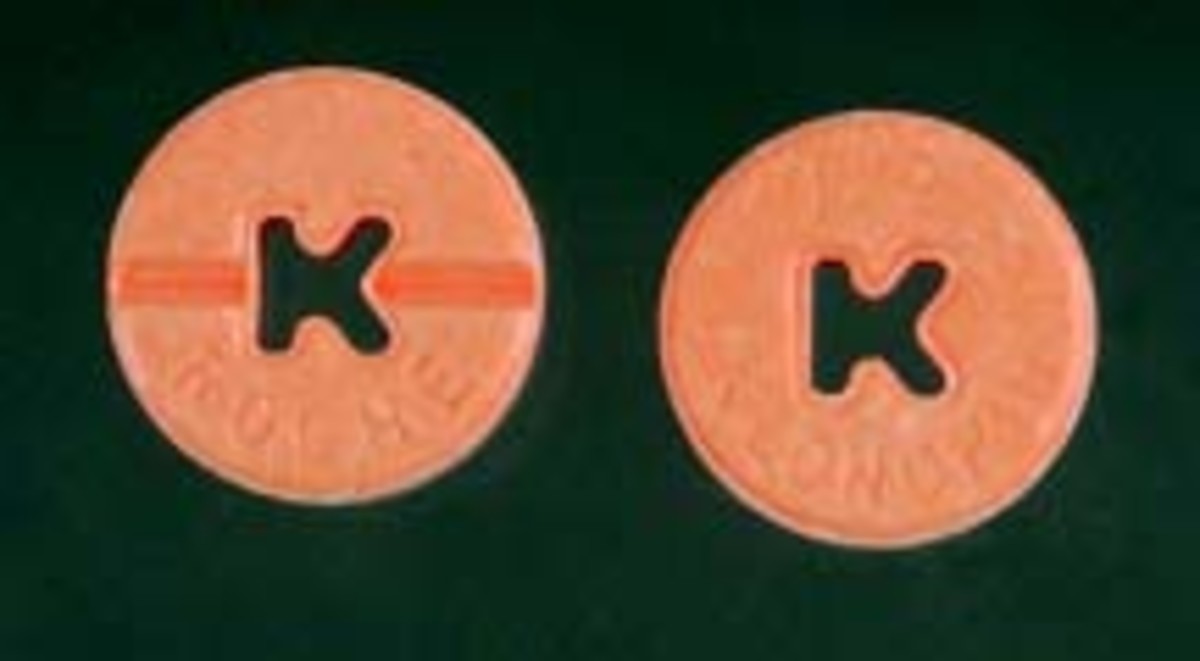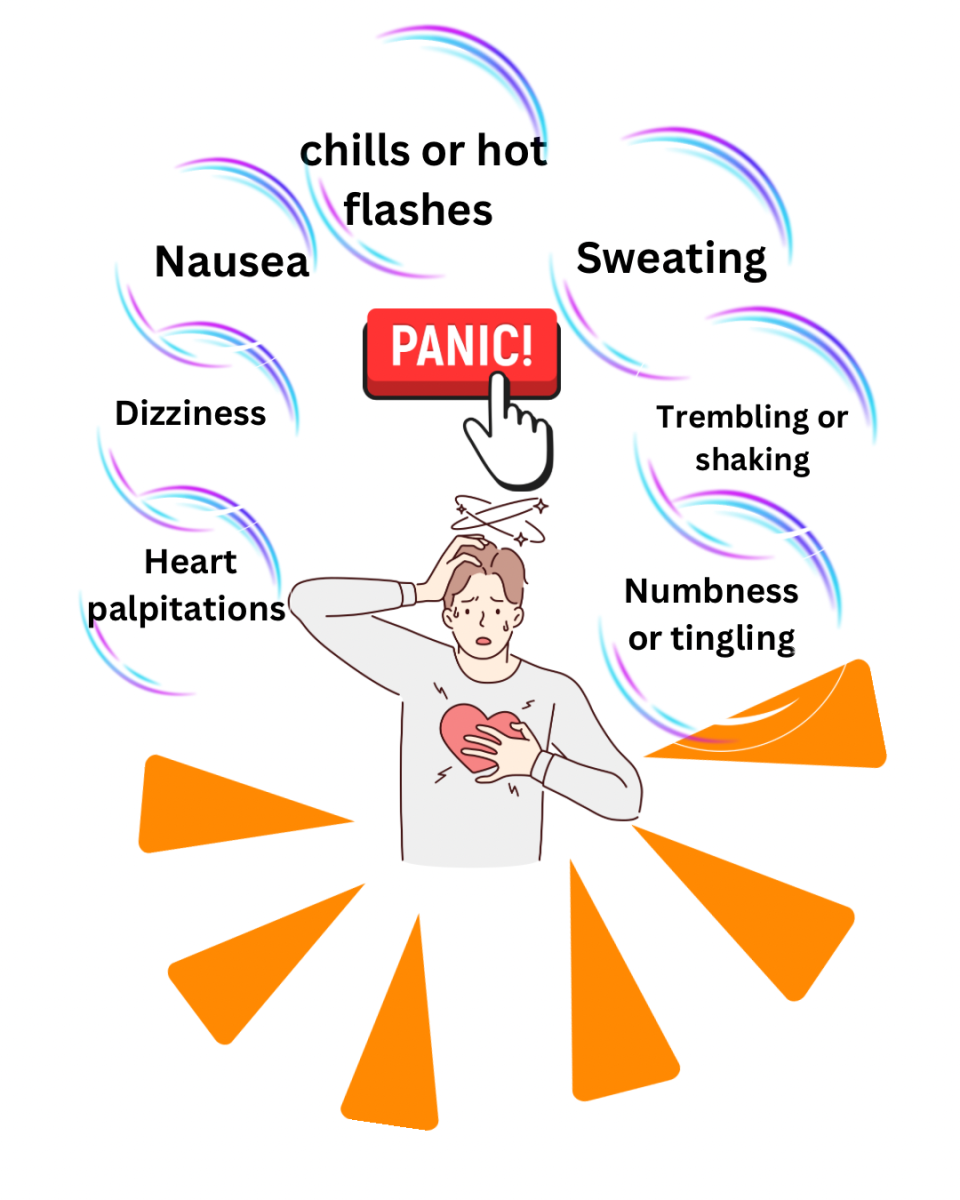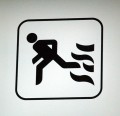- HubPages»
- Health»
- Mental Health»
- Anxiety Disorders
Panic-Anxiety Attack and Panic-Anxiety Disorder: Treatment and Symptoms
panic attacks - anxiety attacks
I had my first panic attack in 2001. My father had recently shot himself, and he lived for three weeks hooked up to a respirator and other gadgets in ICU. Shortly after he was buried, my daughter got into some legal trouble. I thought I was handling everything really well. Of course, I was still grieving for my dad, along with my mother, but I was back at work, and the situation with my daughter was getting better.
I remember the first panic attack I had. I was sitting at my desk one morning, putting information into my computer after taking roll. I was a high school literature teacher. All of a sudden, from out of the blue, my heart began to pound. I got hot. I had trouble breathing. I was sure I was going to pass out, so I sent a student to the office for help.
The school nurse arrived quickly and took my pulse. It was racing. She had our school-based police officer rush me to the emergency room. I was sure I was having a heart attack and was about to die. I remember thinking on the way to the ER, “If I die, who will take care of Mom?”
Once at the hospital, all kinds of tests were run. I expected the doctor to come in and tell me he had to do emergency heart surgery. Instead, he told me he thought I was having a panic attack. Actually, I think he referred to it as an anxiety attack. I shook my head in total disagreement.
“I’m not the kind of person who has anxiety attacks. You don’t even know me. There’s something else wrong with me – something physical. This is not all in my head,” I told him.
His response surprised me: “No, I don’t know you, but I bet I can describe the kind of person you are. I bet you’re very responsible. You try to take care of everyone. People come to you with their problems. You probably have a demanding job. Have you recently had some sort of emotional trauma in your life?”
Wow. He described me perfectly. How did he know about the recent emotional thing? Maybe he was actually a psychic posing as a doctor. I could only reply “yes” to his observations.
He went on to explain. “You are exactly the type of person who has anxiety attacks. Your system is overloaded. And it’s not all in your head. It’s probably a real physical problem – a chemical imbalance.”
He gave me several Ativan to take and wrote me a prescription for more anxiety meds. I thanked him politely and left, with no intention of taking any of those pills. That guy had no idea what he was talking about. I felt much better knowing that my heart was okay, but I refused to even consider that I might have had a panic attack.
For the next few weeks, I was fine. Then one night, my husband and I met some friends at a private club to which we belong. I was sitting there, in the middle of telling a joke, and that powerful feeling struck again. I felt as if I were being smothered. I could hear the people around me talking, but it was like it was a dream or something. I felt removed from reality. My heart was pounding, and my chest was tight.
“Oh, my God,” I thought. “This really is a heart attack. I am going to die.”
My husband rushed me to the ER. More tests, everything was fine. A different doctor was on duty, and he told me he thought I was experiencing an anxiety attack. Where did they find these people? Geez, they need to get a real doctor in here, I thought.
I began to explore all my symptoms. I finally decided it was my blood sugar. I began going to my local pharmacy to have it checked daily. It was fine. Okay, what else could it be? Maybe it was vertigo from an inner ear infection. While I was trying to figure out the cause of my symptoms, I continued having “spells,” as I called them. I refused to refer to them as panic attacks or anxiety attacks.
I had them when I was shopping. I had them when I was watching TV. One night I was awakened in the middle of a sound sleep with one. On numerous occasions, I had them at work and would have to call my husband to come pick me up – there was no way I could drive. These spells were ruining my life. I was beginning to have them almost every day! I got to the point to where I was terrified to leave the house, afraid I would have an attack if I did. I finally got in to see my regular doctor.
What did she tell me? The same thing the ER physician had told me, only she went into more detail. She explained how serotonin, a neurotransmitter, played a role in anxiety and panic attacks. She knew me well and was aware of my father’s death and of my daughter’s problems. I trusted her. She had always taken good care of me, so when she prescribed Paxil, an antidepressant and anxiety medication, I got the prescription filled and began taking it.
Within a few days, I got my life back. That was years ago, and I’ve never had another attack since. Paxil really was a life saver for me. When I first started taking it, however, I had extremely graphic nightmares. Still, they were better than the panic attacks, and after a couple of months, the nightmares disappeared.
What I was experiencing were indeed panic attacks, or anxiety attacks. More specifically, I was suffering from panic disorder, or anxiety disorder. That’s what it’s called when you have a series of attacks. These attacks often go hand in hand with depression, even though I had never suffered from depression. You can have one without the other.
I began to read all I could find about panic attacks. I discovered that almost 6 million people in the US alone suffer from anxiety attacks. About two-thirds of that number are female. Doctors don’t fully understand the disorder, but they’re pretty sure it has something to do with serotonin levels.
My symptoms were text book. People having a panic attack usually experience sweating, a pounding heart, a racing pulse, chest pain or tightness, heart palpitations, dizziness, or lightheadedness. They might have a feeling of impending doom, or that they’re going to lose control, or that they’re about to die. They might also have a sense of altered reality. This symptom is hard to describe, but if you’ve ever felt it, you know exactly what I mean.
Anxiety and panic attacks are treated in several ways. Your doctor might recommend mental health counseling for you. The therapist might use behavioral therapy, cognitive-behavioral therapy, or stress and relaxation techniques.
Your physician might also prescribe drugs like Xanax, Valium, Ativan, or Klonopin. You don’t have to take these every day. You take the drug only when you feel an attack coming on.
If you have been diagnosed with panic disorder or anxiety disorder, you doctor will probably prescribe a drug called a selective serotonin re-uptake inhibitor (SSRI) or an SNRI, which is basically an SSRI that also targets norepinephrine, another neurotransmitter. These drugs make more serotonin available for the brain, and they include Paxil, Prozac, Celexa, Zoloft, Cymbalta, Effexor, and Luvox. You take one of these pills of capsules every day, and it might take them several weeks to be effective. Once they are, however, you might never have another panic attack.
Read more about health:
- The Importance of Long Term Disability Insurance
Do you have long term disability insurance? Take it from me you need it! I dont care how healthy you think you are, you never know what the future holds. You could come down with a long term illness or... - Improving Fertility without Drugs: 25 Tips
Fertility rates in the US have sharply declined over the last few decades. Thousands of couples today have trouble conceiving. Doctors are not completely sure what has caused the decline, but several...









